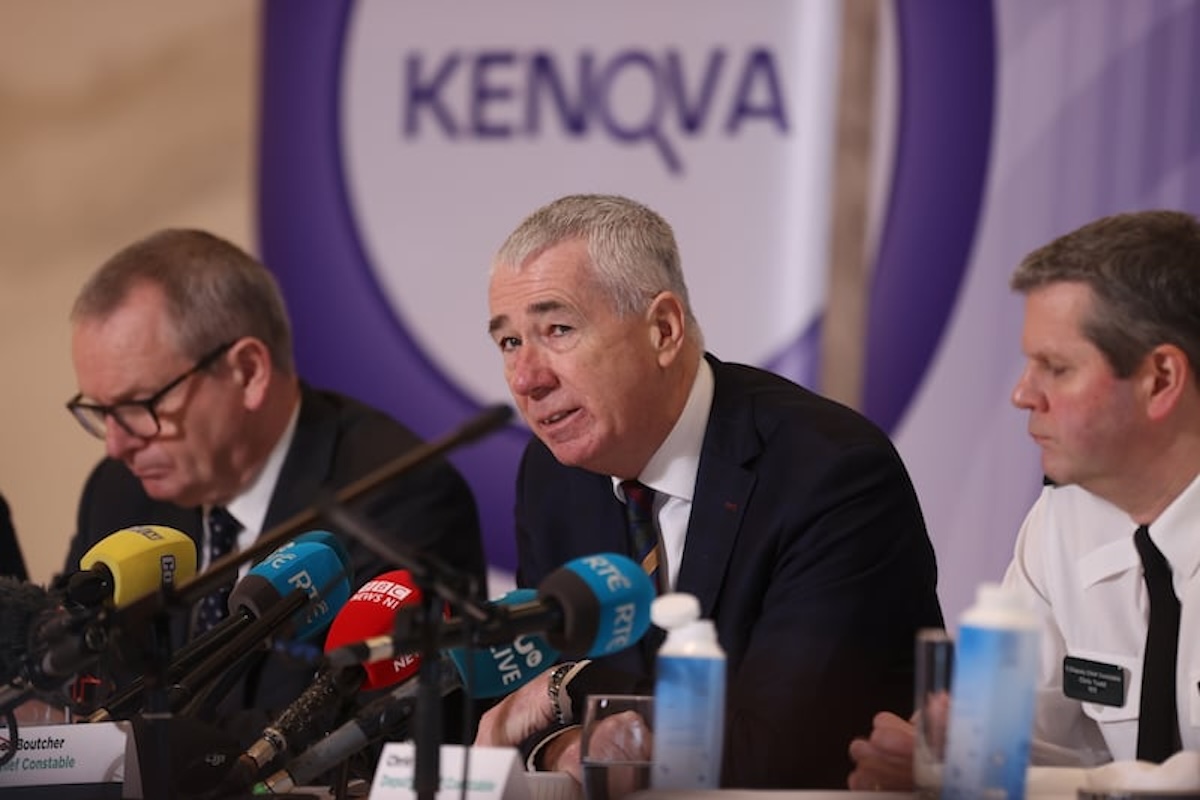
A seven-year police investigation into the role of the British state’s deadliest spy within the Provisional IRA has uncovered little new information, defended his handlers and failed to deliver a single prosecution against those who operated the serial-killing double-agent.
Tasked with destroying the Provisional IRA, Freddie Scappaticci brutally murdered and colluded in the murder of a string of republicans, alleged informers and innocent civilians throughout the 1980s.
He died last year, twenty years after he fled west Belfast into the arms of a British protection scheme.
The Committee for the Administration of Justice said the report “lay bare patterns of impunity in the disapplication of the rule of law to state agents”. Kevin Winters, whose law firm represents some of the families of Scappaticci’s victims, said there was a “horrendous conclusion” that the British state conspired with elements of the IRA in the murder of its citizens.
As well as those who actively colluded with him in the IRA’s Internal Security Unit, the report by ‘Operation Kenova’ refused to identify anyone higher up in the Provisional movement who protected him or who turned a blind eye to the deadly attrition of the IRA from within.
Boosted by the support and direction of other British agents who remain unidentified, Scappaticci, under the direction of MI5 and Special Branch, evaded prosecution and accountability until his reported death last year.
A recitation of the motto of ‘Neither confirm nor deny’ (NCND) was used by different British agencies to cover up for one of the bloodiest killers on their payroll, the victims sacrificed to protect him, his military agenda and the secrets he carried.
The report however, admitted that several deaths “could have been prevented”. No blame was attached to the actions of the British state or the ‘Tasking and Co-ordination Groups’ that managed him – only their lack of cooperation and institutional secrecy came in for criticism.
Boutcher also admitted Scappaticci could have been prosecuted several years before his death, but was protected by what he claimed was a “glacially slow” legal system, rather than a deliberate strategy of delay.
The whitewash of the British government and their agent’s dirty war was propagandistically summarised with the soundbite that Scappaticci ‘cost more lives than he saved’.
However, many of the suspected victims were simply ignored by Operation Kenova without explanation, such as the execution of paedophile Robert Bradford, a killing linked to the cover-up of the Kincora Boys’ Home scandal.
Instead of justice, an apology was bizarrely requested from the British state. Those elements within the Provisional movement who colluded directly or indirectly with Scappaticci were used to demand a second apology from the IRA.
But the use of the ‘Stakeknife’ moniker – invented by journalists 22 years ago as a convenient alternative to the original ‘Steak-Knife’ – confirmed for many that the report was a sham.
It failed to even identify Scappaticci as ‘Stakeknife’ on the basis, like so much in the report, that Britain can ‘neither confirm nor deny’ (NCND) anything relating to state intelligence.
It remains to be seen if PSNI Chief Jon Boutcher’s grim-faced delivery of his 200 page report has succeeded in disguising Britain’s double-barrelled project to decimate and reshape the IRA.
It defended the British Crown Forces at length, speaking of a “challenging” situation for “intelligence officers” who it says were deciding who would live and who would die, and making “understandable mistakes”.
It claimed that intelligence was not always “passed on” or “properly assessed”, exculpating senior figures in the British state who would have been fully aware of his actions.
It claims decisions were made secretly within the “organisational bubble” of the RUC/PSNI Special Branch and were not subject to oversight or review.
It also acknowledged the lack of any “meaningful” legal policy framework for handling double agents, the avoidance of record-keeping and the destruction of records.
It called for a review of the “implacable dogma or mantra” of NCND, which “has the qualities of a stone wall”, a point taken up by Kevin Winters. He said many victims had wanted to see Scappaticci named explicitly in the Operation Kenova report, and called for an end to NCND.
“The decision not to name Fred Scappaticci as the agent Stakeknife has been difficult for many to accept,” he said.
“The legal and technical rationale for doing so will be lost upon many people, particularly next of kin of those murdered.”
He added: “The report does make it very clear, by inference or otherwise, that Scappaticci was the agent Stakeknife.
“But for many it is important to see his name, as it were, go up in lights as Stakeknife.”
Kevin Winters also raised concerns about the “systemic culling” of records which he said “chimes with the obstacles put in place of Sir John Stevens whenever he commenced his work in investigating loyalist - state collusion in the 1990′s.”
He said the report had also put to bed the “myth that agents like Fred Scappaticci saved lives”.
He added: “The [Kenova] report calls for apologies all round. Respectfully, for some families this does not really cut it. In some ways it represents a soft landing.
“As an alternative, we say the report actually signposts a way forward for a full public inquiry into state penetration of Belfast PIRA ISU, internal security unit, during the conflict.”
He noted that Freddie Scappaticci was “not the only Stakeknife”.
“It is over-simplistic and naive to assume that Fred Scappaticci operated as a lone agent,” he said.
“It is misleading to assume that he presents as the apex of British state collusion inside the IRA at this time in the conflict.
“Many of the cases investigated by Kenova do not feature Fred Scappaticci at all.
“He was not the only Stakeknife. Today’s report does not end the Stakeknife saga. On the contrary, it signposts the need for further probing.”
![[Irish Republican News]](https://republican-news.org/graphics/title_gifs/rn.gif)
![[Irish Republican News]](https://republican-news.org/graphics/title_gifs/harp.gif)

